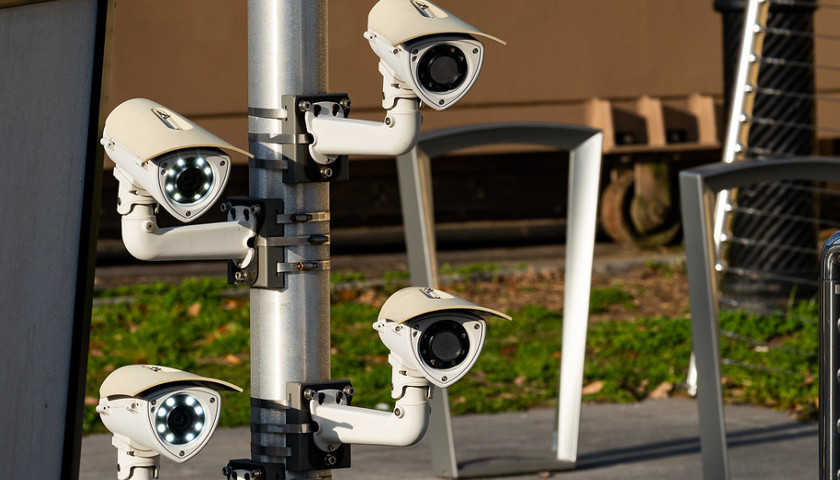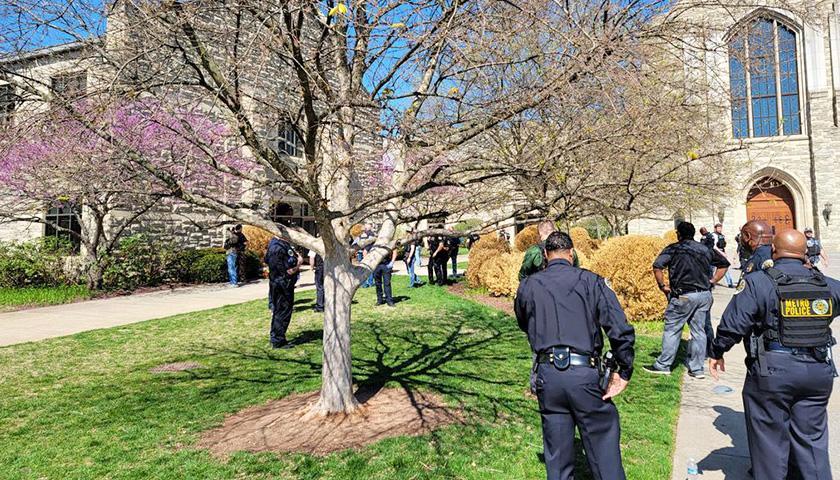Metro Nashville Council considered three bills on first reading concerning license plate reader (LPR) use and a resolution urging Metro Nashville Police Department to expand use of mental health professionals at incidents at their February 15, 2022 meeting.
Nashville Mayor John Cooper was in attendance.
Councilmembers Bob Mendes and Erin Evans sponsored BL2022-1114, an ordinance on first reading that amends Section 13.08.080 of the Metropolitan Code of Laws pertaining to the use of License Plate Reader (LPR) technology to change the way personally identifiable information is defined.
“Personally identifiable information” or “PII” shall mean any representation of information that permits the identity of an individual to whom the information applies to be reasonably inferred by either direct or indirect means. Further, PII is defined as information: (i) that directly identifies an individual (e.g., name, address, social security number or other identifying number or code, telephone number, email address, etc.) or (ii) by which any governmental department or agency intends to identify specific individuals in conjunction with other data elements, i.e., indirect identification. (These data elements may include a combination of gender, race, birth date, and other descriptors). Additionally, information permitting the physical or online contacting of a specific individual is the same as personally identifiable information. This definition includes information that is maintained in either paper, electronic or other media.
The ordinance passed on first reading and will now move on to a second reading.
Councilmember Bob Mendes filed BL2022-1115, an ordinance on first reading that amends “Section 13.08.080 of the Metropolitan Code of Laws pertaining to the use of License Plate Scanner (LPR) technology to exclude assisting with immigration enforcement as an allowed use of LPRs.”
This legislation bans the cooperation with U.S. Immigration and Customs Enforcement (ICE) using LPR technology. The ordinance passed on first reading and will now move on to a second reading.
BL2022-1116, is an ordinance on first reading that amends Section 13.08.080 of the Metropolitan Code of Laws “pertaining to the use of License Plate Scanner (LPR) technology to ensure data access parity for the Community Oversight Board.” Councilmembers Bob Mendes, Dave Rosenberg, Burkley Allen, and Ginny Welsch sponsored the ordinance. The ordinance passed on first reading and will now move on to a second reading.
A six-month LPR pilot program was approved at the February 8, 2022 meeting, with Mayor Cooper’s support.
Bills on first reading must be passed on second and then third reading in order to take effect.
Councilmembers Zulfat Suara and Sharon Hurt filed RS2022-1391, a resolution “urging the Metropolitan Nashville Police Department to expand its use of mental health professionals in responding to calls involving an individual experiencing a mental health crisis.” That resolution was in response to the January 27, 2022 incident where Landon Eastep, an individual with a history of mental problems, died after being shot by officers from Metro Nashville PD on Interstate 65. The resolution passed as part of Metro Council’s consent agenda.
The vast majority of other resolutions and ordinances dealt with dealt with grant approvals, zoning, easements, and contracts.
The next meeting will take place on March 1, 2022 at the Metro Nashville Courthouse.
– – –
Aaron Gulbransen is a reporter at The Tennessee Star and The Star News Network. Email tips to [email protected].
Photo “License Plate Reader Cameras” by Tony Webster CC2.0






God forbid law enforcement use technology to catch those who are breaking the law. Oh no, we can’t punish those in America ILLEGALLY or those who cannot follow traffic law and therefore jeopardize the safety of others.
Wil that be your response when the government places a camera or two directly viewing you on your personal property to “ensure that you are safe”?
It is a sad fact that everything we post on line (especially if you are foolish enough to participate in “social media”), is and has been tracked and archived for the last decade. Everyone’s cell phone has become their “mark of the beast”. There is no privacy anymore in the Western World. There is no doubt in my mind that all of us have been and continue to be “tracked” and cataloged by the forces of evil. Privacy no longer exist. So the question remains…are you a great enough threat to the forces of evil for them to make you go away, and are your convictions great enough to stand up for what you believe in? A camera watching my house is the the least of my worries.
The LPR question is one of personal privacy. No amount of wording will prevent the unlawful use of these dastardly things. This is just the first step down that slippery slope.
I am sure that “mental health professional” are chomping at the bit to have gunshots aimed in their direction. I suggest that the police officers wait in the safety of their patrol cars while these “mental health professionals” work their magic.